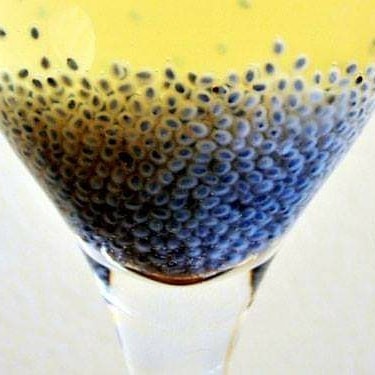Sabja seeds provide concentrated nutrition and fiber. All the ingredients needed for plant germination are present in the seed, including carbohydrates, vitamins, minerals. Studies show that it provides a wide range of health benefits, from treating nausea to indigestion, diabetes, constipation, respiratory problems and so forth. There are additional health benefits we can get by adding basil seeds in our diet
- Aids in Digestion:
Basil seeds are commonly used to provide relief from stomach upset. Due to its carminative effects, it is effective for treating digestive disorders such as stomach cramps, flatulence, constipation, irregular bowel movements and indigestion. - Treats Colds:
Another benefit of basil seeds is that they also provide relief from influenza, fever and cold. Since it has antispasmodic effects, it can help treat whooping cough. In fact, tulsi is the main ingredient in many expectorants and cough syrups. - Cures Respiratory disorders:
The herb is useful in the cure of respiratory disease, according to recent studies. A mixture of the herb, with ginger and honey is a remedy for asthma, cough, cold, influenza and bronchitis. Simply boil it in a glass of water and consume it. - Stress reliever:
Consumption of basil seeds has an uplifting effect on our mood and thus is beneficial for relieving mental fatigue, nervous tension, depression and migraine. Due to its calming effect, it is commonly used for aromatherapy purposes, giving clarity and mental strength.
How to use basil seeds:
Put 2 tsp. of basil seeds to 1/2 cup – 1 cup of warm water. The warm water (not boiling) helps to fully swell the basil seeds, releasing antioxidants and digestive enzymes. Allow the mixture to stand for at least 15-20 minutes with the warm water/liquid to give the seeds time to absorb water and take on a gelatinous-tapioca like texture.
- Start your day with 1 glass of warm water with lemon juice and 1 tsp soaked sabja/tulsi seeds
